
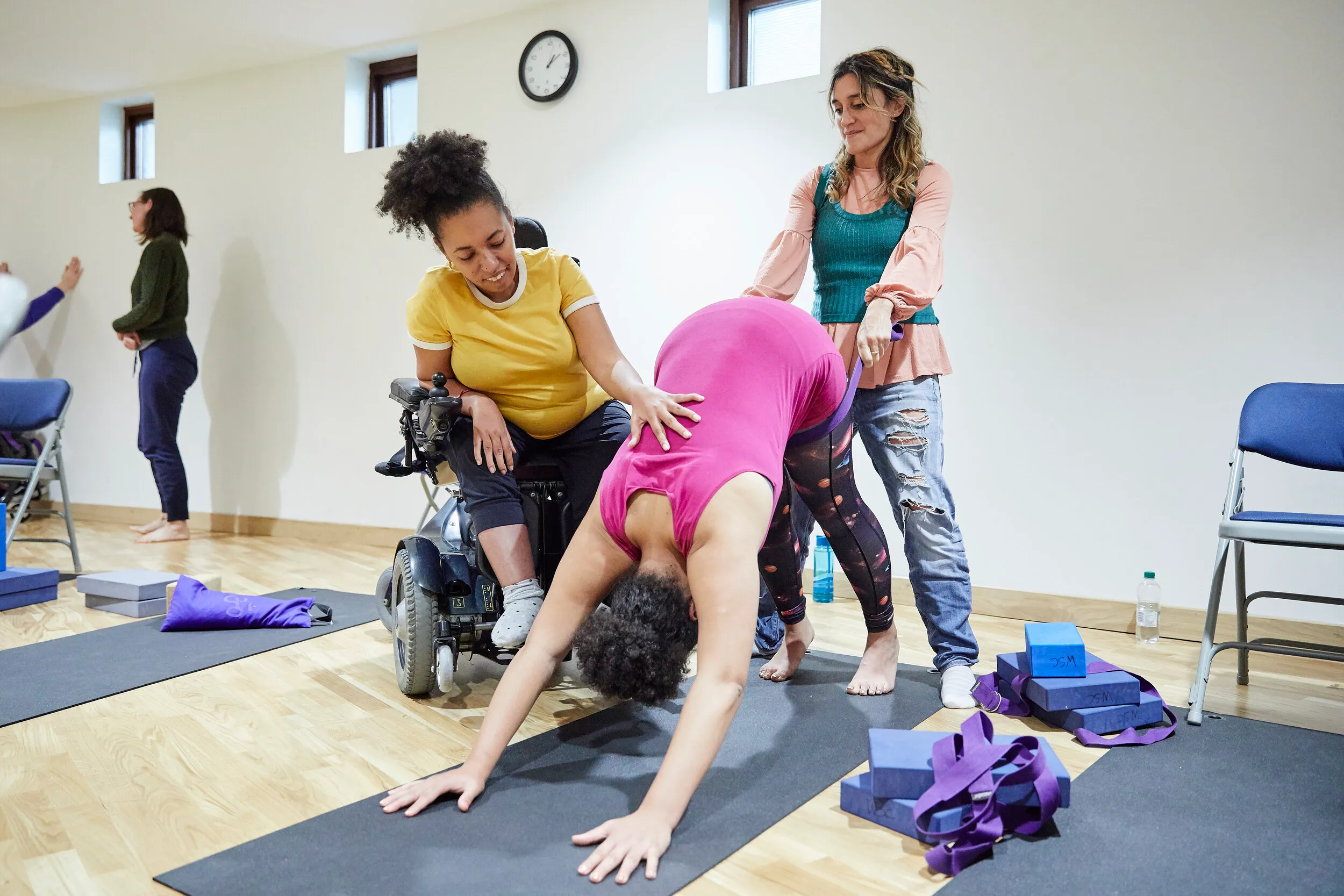
Here at My Yoga Teacher, we truly do believe that yoga is for everyone. Every body. No matter the shape, size, fitness level.
But what about people with disabilities? Debilitating illnesses like multiple sclerosis, Parkinson’s disease, rheumatoid arthritis, or cancer?
How can these people, who may not have full use of their limbs, do yoga?
Our answer is, there’s a yoga for that.
When we say everyone can do yoga, we mean it. And when we say yoga benefits everyone, that’s the truth.
At My Yoga Teacher, we offer over 35 different types of yoga class, even chair yoga, which is a form of adaptive yoga we’ll be talking about here! If you haven’t checked out the amazing classes My Yoga Teacher offers, taught by expert instructors from the birthplace of yoga, India, we invite you to grab your 2-week free trial here! No credit card needed.
In the meantime, let’s talk about the rise of adaptive yoga for people who may not think (or feel) like yoga is for them.
[CTA-DEFAULT]
Adaptive yoga is a form of yoga that adapts the movements to a person’s physical abilities. While there are almost always excellent modifications to every yoga pose, there are still many people who aren’t able to benefit from yoga due to physical limitations.
It makes yoga accessible to all, whether seated, standing, or down on the floor.
This is why more and more yoga studios are creating adaptive yoga classes!
Common props for adaptive yoga are chairs, straps, bolsters, blankets, blocks, and even walls. These props are also used for many other types of yoga, but are imperative for people who want to practice yoga but are wheelchair bound, have prostheses, or suffer from debilitating diseases or illnesses such as MS or cerebral palsy.
Instructors of adaptive yoga also realize that the poses aren’t everything. Breathing exercises and meditation remain an important part of any yoga practice, including this one!
Did you know that 1 in 4 people in the United States lives with a disability that majorly impacts their life?
If you are one of those people, we are here for you! If you’re not, we want to bring awareness to the topic of how yoga can positively impact special populations.
Because people with disabilities (physical or otherwise) are vastly underserved in the United States – and probably the world as a whole – it’s imperative that we make sure they have the opportunity to experience the benefits of yoga. These populations are even more vulnerable to anxiety, depression, muscle atrophy, heart and lung disease, and compromised immune systems.
Adaptive yoga allows disabled people of all ages, shapes, and sizes to experience benefits such as:
This population wants the same things as anyone else! To feel and be healthier, mentally, physically, and emotionally.
One of the most popular forms of adaptive yoga is chair yoga. The chair is not only used as a prop for many forms of yoga, it’s often what keeps people with disabilities mobile and independent.
Also known as “wheelchair yoga,” chair yoga isn’t just for people in wheelchairs! It’s designed for anyone who struggles with practicing yoga standing up.
Here are some yoga poses that work well for people who need to sit or are unable to stand due to a disability:
Traditionally, this pose is practiced on hands and knees on a yoga mat. If you’re familiar with this pose, you’ll be able to easily implement it into your life while sitting as well!
Cat and cow pose is also beneficial for people who sit for long periods of time at a desk or who sit a lot in general for work.
If you’re unfamiliar with cat-cow stretch, have a look at the images below or join any of the classes on MYT! We also offer Chair Yoga for those who struggle with disabilities or injuries, so come check it out!
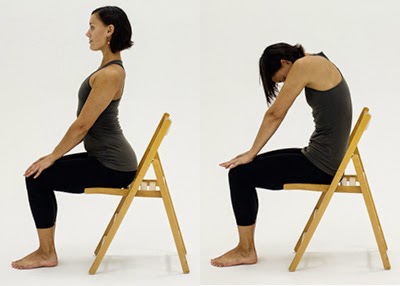
Just like Standing Forward Bend, this pose still stretches the lower back muscles, glutes, and hip flexors. While you won’t get the hamstring stretch that you would normally get with Standing Forward Bend, there are other adaptive yoga poses that we cover in class that do!
Chair Forward Bend also improves circulation and awakens the senses like the traditional version does as well.
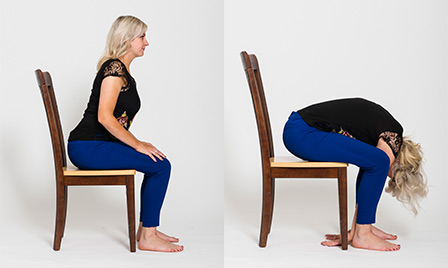
Is there anything better than a good side stretch in the morning?
Believe it or not, extended side angle pose is very adaptable to various different disabilities. The image below is just one way you can modify this pose. And it feels oh so good to stretch out that rib cage and open the lungs when you spend a lot of time sitting or lying down.
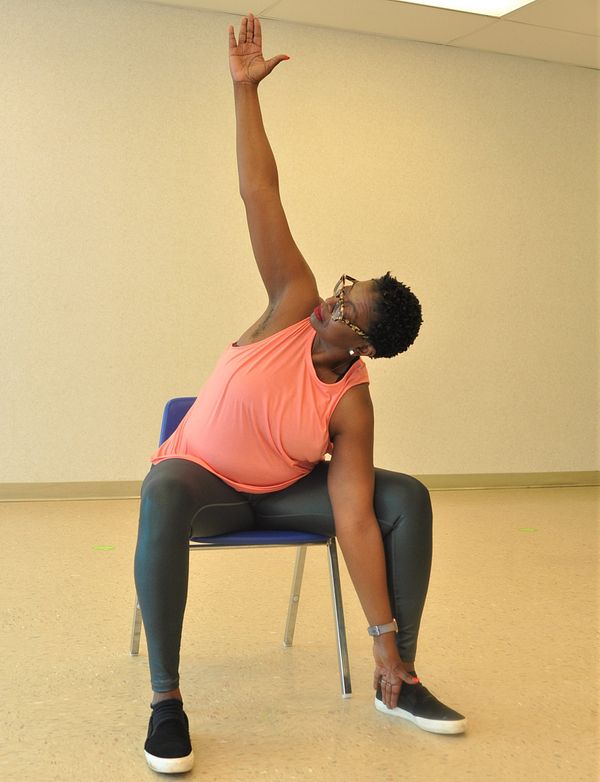
People confined to wheelchairs, beds, or sit a lot in general, often have problems with tightness in their hips and lower back.
That’s why pigeon pose is a great chair pose!
A note for paraplegics: You may want to recruit some assistance bringing your legs and feet into position for this pose. Remember, those muscles, tendons and ligaments still need to be stretched!
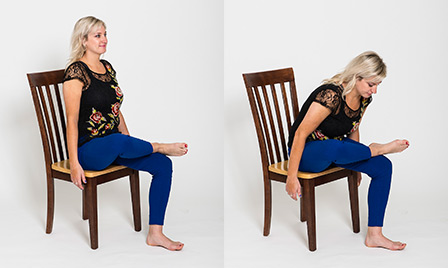
Many times, people who are chair or bed bound have digestive problems, trouble moving their bowels, and spinal issues. Twisting postures are great for alleviating tight back muscles and for getting the digestive system moving!
Plus, spinal twists can be done with no assistance at all. Just be sure to listen to your body and not push it further than it wants to go.
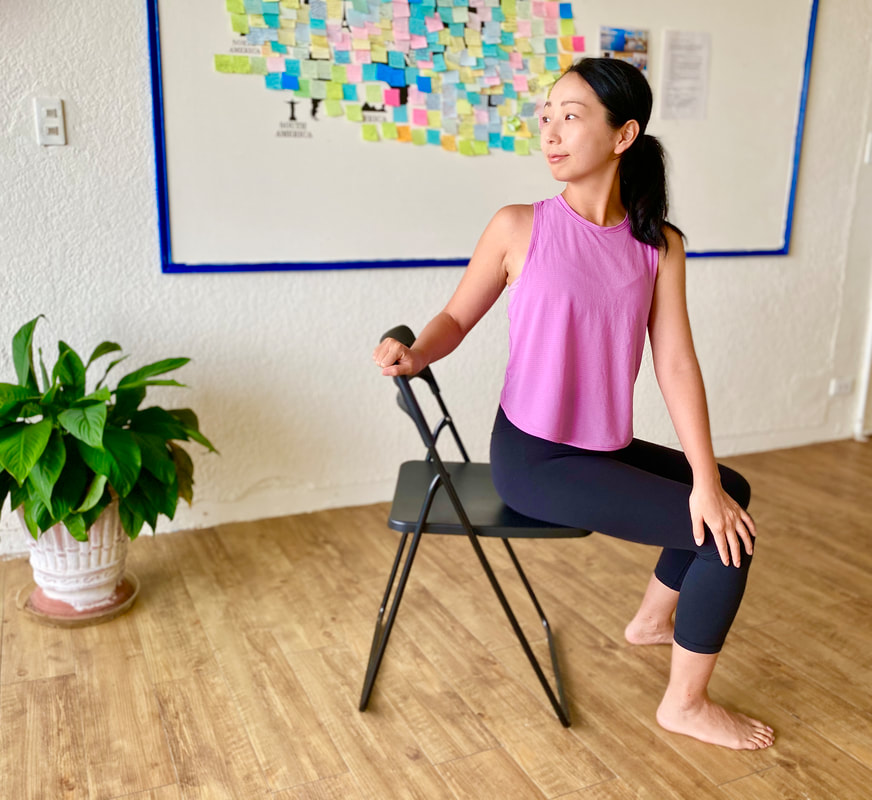
This adaptive yoga pose can be done lying on your back or sitting in a chair. It’s best done using a strap. For those who have little or no feeling in their legs, this pose is an important stretch to help maintain muscles, which can easily atrophy if left immobile for long periods of time.
Single Leg Stretches also release tension in the lower back, hips, and hamstrings!
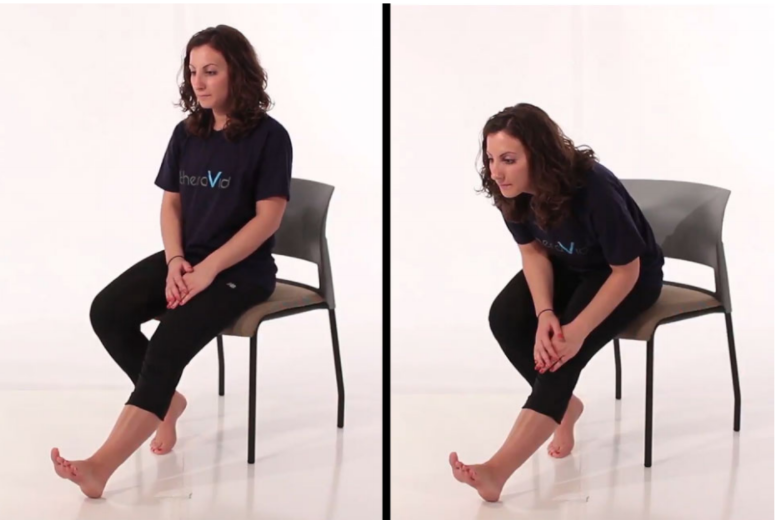
There are many other adaptive yoga poses for people with disabilities. There are even yoga classes that help strengthen, tone, and lengthen the muscles for yogis who suffer from debilitating illnesses.
Special populations need just as many, if not more, tools to help them cope with the effects of their illness or injury. Every aspect of their daily life can be affected by their disability, causing physical, emotional, and mental harm.
Adaptive yoga is an excellent tool for those people to alleviate the stress, anxiety, depression, and emotional upheaval that comes from their disability.
We hope you’ll join us at My Yoga Teacher for one of the many classes offered for people of all shapes, sizes, ages, and ability levels! If you haven’t checked us out yet, get your 2-week free trial here and join us on the mat, from a chair, or wherever you are able!
Namaste.
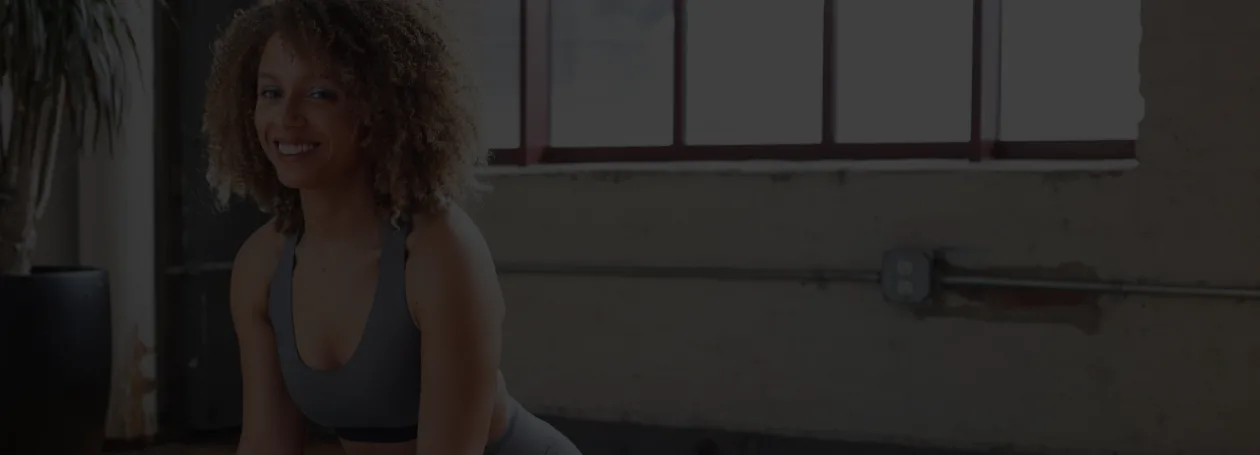
Receive personalized guidance tailored to your unique fitness goals, live with a dedicated coach—no credit card required.